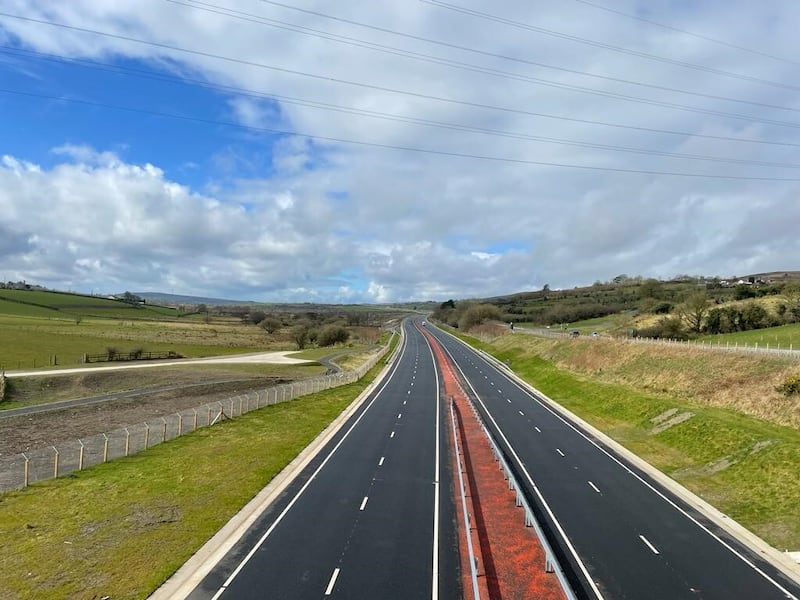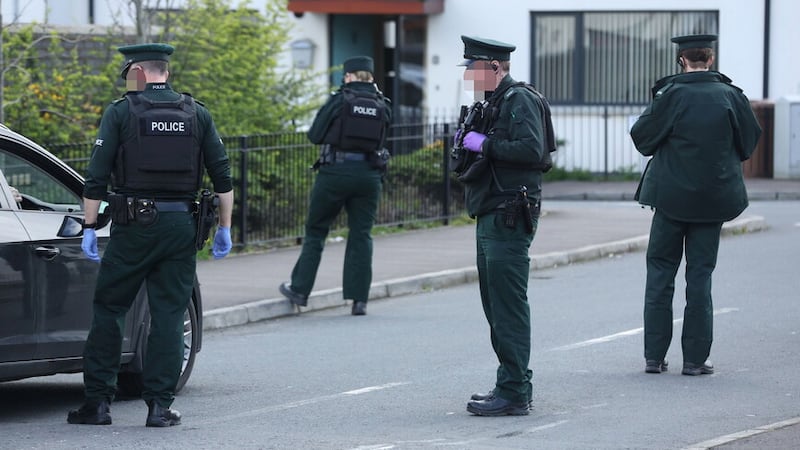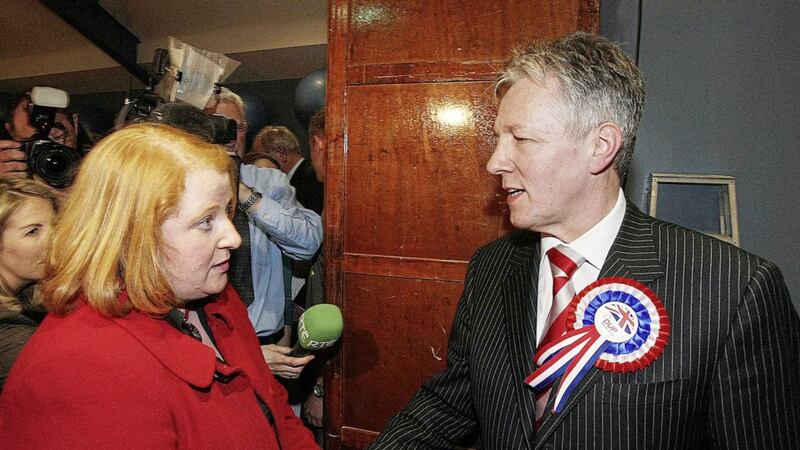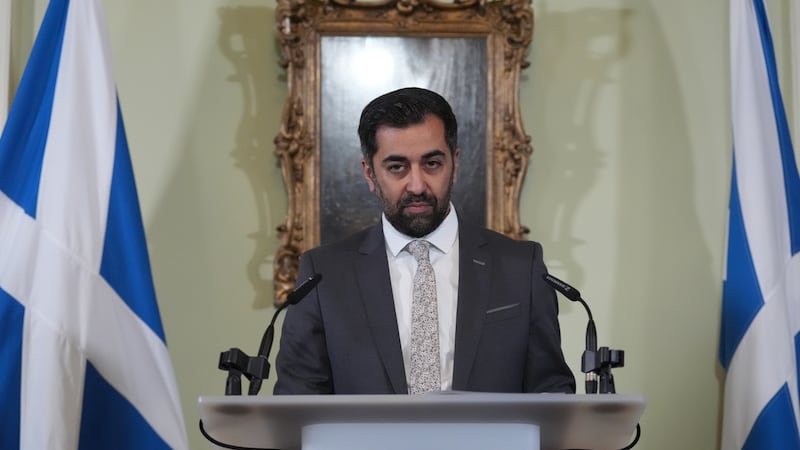Many people in Northern Ireland have doubts about policing, often with good reason. But how suspicious must you be to think the PSNI would leave two tons of evidence outside a police station with the intent of having it burned in public view?
That was the implication from some critics after an arson attack on a vehicle examined over the loyalist feud in Newtownards. Leaving the vehicle outside overnight to be collected might have been sloppy but there is no need to explain carelessness with a conspiracy theory. It might be caused by low staff numbers, low morale, the stress of suddenly being in the middle of extreme, unpredictable violence and the fear that senior management will not have your back.
Ironically, the Paramilitary Crime Taskforce is making real progress against loyalism. But routine policing, like most public services, is falling apart.
****
Sir Jeffrey Donaldson risks splitting the DUP over the Windsor Framework, a former UUP advisor has said. David Kerr told BBC News: “I think the DUP Westminster team are clearly quite comfortable keeping Stormont down... MLAs have a different view, I suspect.”
This was a diplomatic simplification. Donaldson is an MP, while MPs loyal to his leadership range from Gavin Robinson to Gregory Campbell. The awkward squad consists primarily of Ian Paisley, Sammy Wilson and, in the Lords, Nigel Dodds. It is pathetic that Donaldson cannot control them, not least because he was the DUP’s chief whip in the Commons for years.
****
Bertie Ahern has said Fianna Fáil could be a positive influence as a junior coalition partner to Sinn Féin.
“I’ve watched people come into the Dáil over the years,” the former Taoiseach told RTE. “They come in with all this ideology stuff. As soon as they’ve taken the facts of life, they become normal people.”
These widely reported comments follow an under-reported story from last October’s Fianna Fáil annual conference. The Irish Times was told the party’s likely conditions for entering coalition with Sinn Féin are: “unambiguously repudiating the IRA”, “a complete apology for the violence of the Troubles”, “recognition of the role of the Garda, Defence Forces and the courts, including the Special Criminal Court” and “rhetorically concede that there are two jurisdictions on the island, called Ireland and Northern Ireland".
****
The BBC has reported that former DUP education minister Michelle McIlveen extended a school counselling programme twice last year despite knowing it was unaffordable. She used a procedure called a ministerial direction to tell officials she was noting their concerns and ordering them to proceed regardless.
McIlveen might feel the BBC’s focus on her was a little late and little unfair. Her actions were reported in January by Stormont’s new independent Fiscal Council, which identified them as part of a general problem with ministerial directions during the caretaker executive period, when financial discipline collapsed.
At least half the executive’s record £650 million overspend last year was due to such directions, with the vast bulk of the bill run up by UUP health minister Robin Swann.
****
The strike by five teaching unions planned for April 26 is a genuine signal of desperation from the profession. It will include the National Association of Head Teachers, striking for the first time in its 125-year history. But who are teachers in Northern Ireland striking against? With no executive, there are no ministers to make an improved pay award. With no agreed budget, civil servants cannot give teachers a raise either. The secretary of state is not meant to intervene with a spot of direct rule, as he told health unions this week. Stormont could be back as early as May - not postponing industrial action until at least then is gratuitous, considering all the education children have missed in recent years.
****

The newly dualled section of the A6 between Derry and Dungiven has opened, after a still largely unexplained delay. This is great news but at the risk sounding churlish, what about the rest of it? A final short stretch into Derry will be held up for years by an illegal landfill. According to Wesley Johnston’s invaluable NI Roads website, the remaining 20-mile section over the Glenshane Pass towards Belfast would cost £300 million to dual. There have been studies into the route but no upgrade proposal, even on the vaguest open-ended timescale the Department for Infrastructure gives to other projects.
****
Could Stormont ban plastic wet wipes? The question arises after a sewage overflow in Donaghcloney caused UUP councillor Kyle Savage to tell the DUP to get back to work. NI Water says the overflow, like nearly all blockages, was caused by wet wipes and cotton buds flushed down the toilet. Cotton buds are single-use plastics, banned in the EU since 2021 and hence banned here under the Windsor Framework, although this has yet to be implemented. Plastic wet wipes are not banned in the EU. The UK is considering a ban, which would have to apply across the whole UK under the 2020 Internal Market Act. So if Stormont attempted its own ban ahead of the UK and the EU, this would breach the Internal Market Act and the Windsor Framework. Or would it? This stuff would drive you round the bend.








